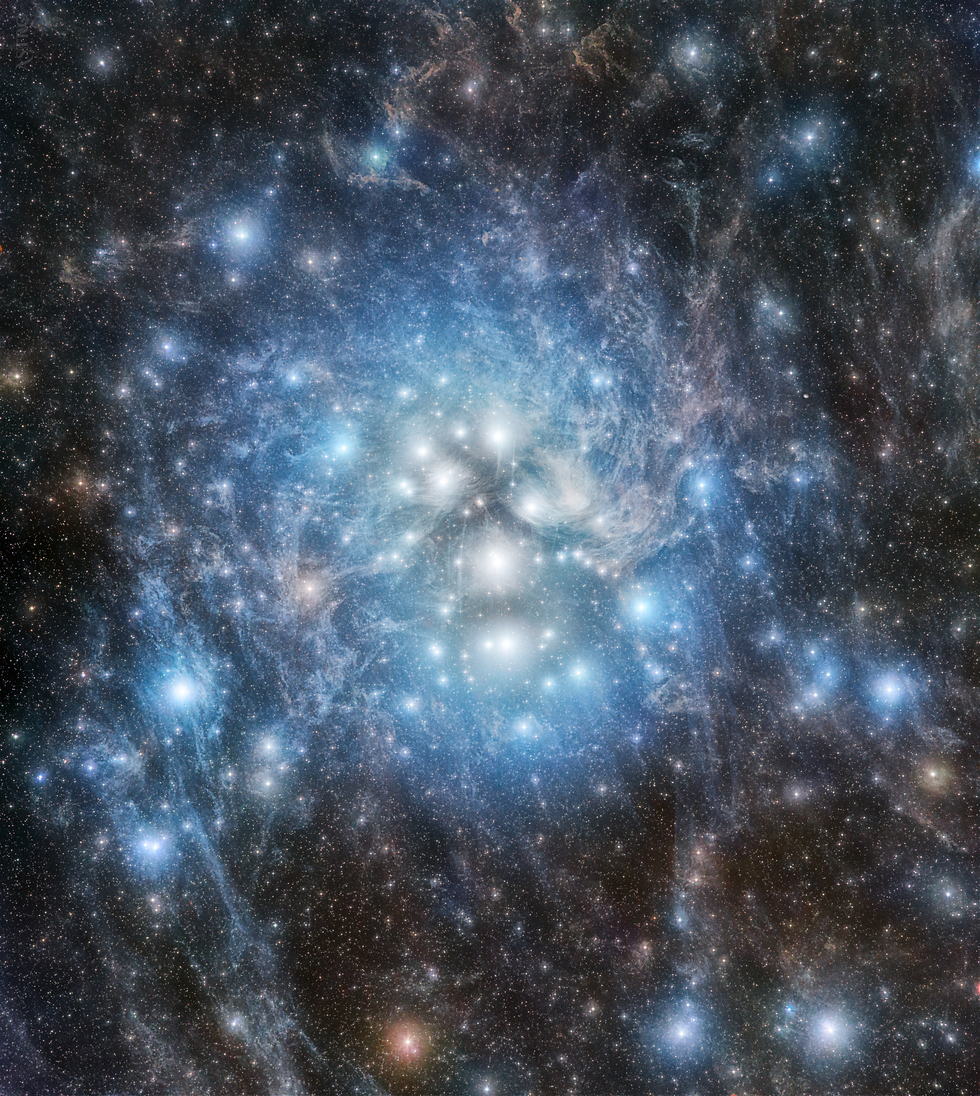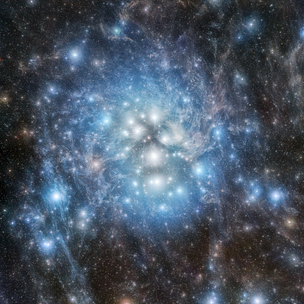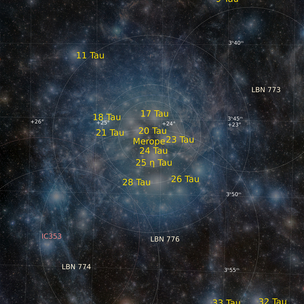M45 - The Pleiades
0
17
M45 - The Pleiades
The Pleiades ... a real love-hate object of mine! Somehow the processing never works out as i imagine, whereupon I put the whole thing back into the corner for a few weeks. Well, in the meantime i have reached a state with which i'm halfway satisfied, but there is still definitely a lot of room for improvement!
----------------------------------------------------------
The Pleiades (/ˈpliː.ədiːz, ˈpleɪ-, ˈplaɪ-/), also known as The Seven Sisters, Messier 45 and other names by different cultures, is an asterism and an open star cluster containing middle-aged, hot B-type stars in the north-west of the constellation Taurus. At a distance of about 444 light years, it is among the nearest star clusters to Earth. It is the nearest Messier object to Earth, and is the most obvious cluster to the naked eye in the night sky.
The cluster is dominated by hot blue luminous stars that have formed within the last 100 million years. Reflection nebulae around the brightest stars were once thought to be left over material from their formation, but are now considered likely to be an unrelated dust cloud in the interstellar medium through which the stars are currently passing. This dust cloud is estimated to be moving at a speed of approximately 18 km/s relative to the stars in the cluster.
(Source: Wikipedia)
----------------------------------------------------------
The Pleiades (/ˈpliː.ədiːz, ˈpleɪ-, ˈplaɪ-/), also known as The Seven Sisters, Messier 45 and other names by different cultures, is an asterism and an open star cluster containing middle-aged, hot B-type stars in the north-west of the constellation Taurus. At a distance of about 444 light years, it is among the nearest star clusters to Earth. It is the nearest Messier object to Earth, and is the most obvious cluster to the naked eye in the night sky.
The cluster is dominated by hot blue luminous stars that have formed within the last 100 million years. Reflection nebulae around the brightest stars were once thought to be left over material from their formation, but are now considered likely to be an unrelated dust cloud in the interstellar medium through which the stars are currently passing. This dust cloud is estimated to be moving at a speed of approximately 18 km/s relative to the stars in the cluster.
(Source: Wikipedia)
SPECIFICATIONS
Telescope
Takahashi FSQ-106EDX4
Camera
FLI PL16083
Location
IC Astronomy, Spain
Date of observation
November 2020 - December 2021
Filters
Astrodon LRGB
Processing
Processed in PixInsight and Photoshop





